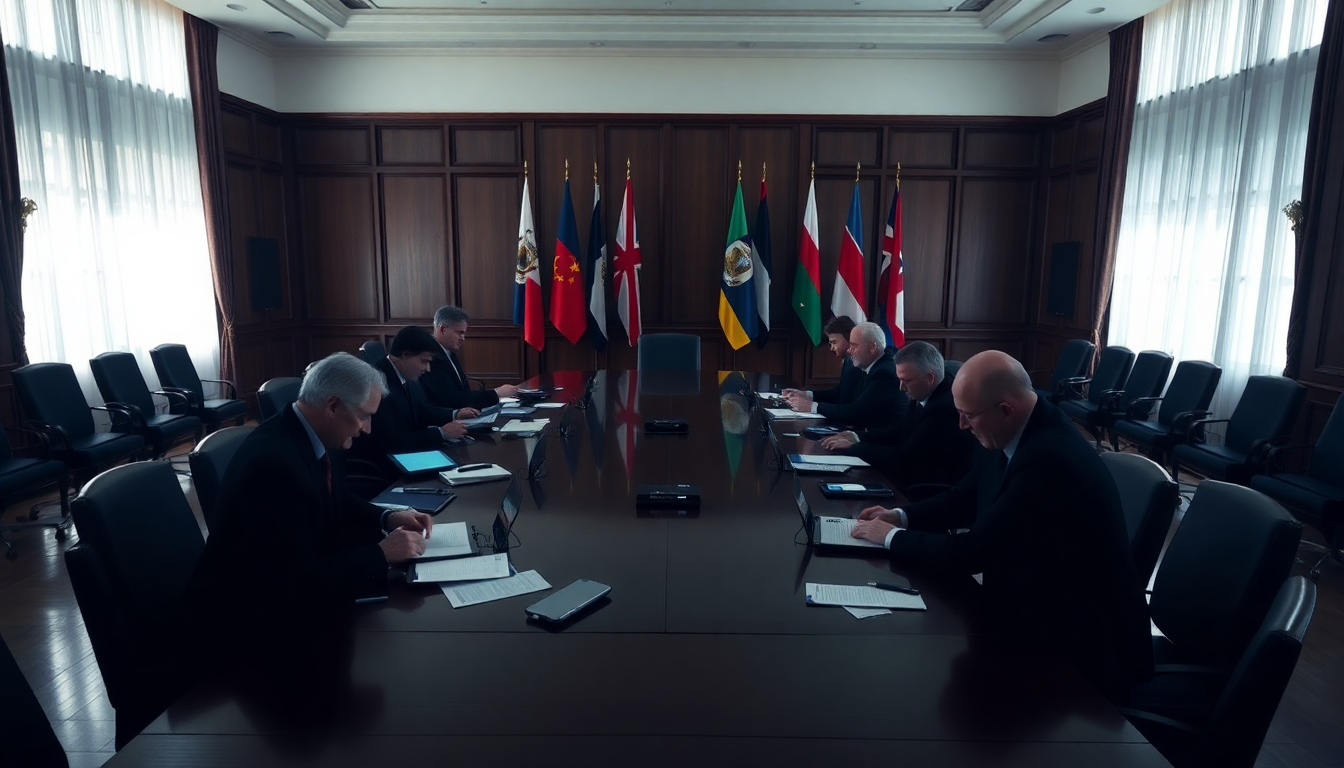Table of Contents
In today’s fast-paced world of international relations, the way we communicate in diplomacy is more important than ever. Have you ever noticed how the words chosen by world leaders can shape our understanding of global issues? Recent reports reveal that many Western powers, especially the United States, are becoming increasingly cautious when it comes to condemning certain geopolitical actions. Why is this? Often, it boils down to strategic decisions that favor negotiation over outright criticism.
The Role of Language in Diplomacy
Language is not just a means to convey messages; it’s an essential tool in diplomacy. The words we choose can either pave the way for constructive dialogue or create significant barriers. Think about it: when countries find themselves at odds, the language used in joint statements can heavily influence future negotiations. For example, a strong condemnation might solidify one side’s position but could also shut down the possibility of finding common ground. Isn’t it fascinating how a few carefully chosen words can have such a profound impact?
A recent comment from an anonymous Canadian official sheds light on this delicate balance. They noted, “Basically, no statement because the Americans wanted to water it down,” pointing out how American preferences can shape diplomatic language. This highlights the intricate dance of diplomacy where every word is weighed against potential fallout.
The Implications of Softened Stances
What happens when diplomatic stances are softened? The implications can be significant. On one hand, it might open doors for dialogue and negotiations that could lead to resolutions. On the flip side, some might interpret this as a lack of commitment to international norms, potentially encouraging those who don’t play by the rules. The real challenge for diplomats is to strike a balance that allows for meaningful engagement while still standing firm in their principles.
Moreover, in today’s global political arena, competing narratives are everywhere. The way diplomatic communications are interpreted can differ widely across regions and media outlets. This complexity requires a careful approach, as misunderstandings can quickly spiral into tensions. Have you ever seen how quickly a miscommunication can escalate on social media? The same principles apply on the world stage.
Strategies for Effective Communication
So, how can diplomats effectively navigate the challenges of international communication? Here are a few strategies. First, clarity and precision in language are key. Diplomatic language should aim to be clear while still allowing some room for interpretation. Secondly, fostering relationships through continuous dialogue can create an atmosphere where open communication thrives, reducing the chances of conflicts arising from miscommunication.
Additionally, understanding the cultural context of the parties involved can greatly enhance communication effectiveness. Different cultures have unique norms when it comes to expressing disagreement or support, and being aware of these subtleties can make a huge difference in the success of diplomatic efforts. Isn’t it interesting how knowing a bit about someone’s background can change the conversation entirely?
Conclusion: The Future of Diplomatic Discourse
As we face new global challenges, the need for nuanced and strategic diplomatic language is only going to increase. The ability to express strong positions without closing off avenues for dialogue is a skill that diplomats must refine. The current landscape serves as a powerful reminder that in international relations, the way we use words can truly shape the course of history. So, what are your thoughts on the importance of language in diplomacy? It’s a topic worth exploring!


